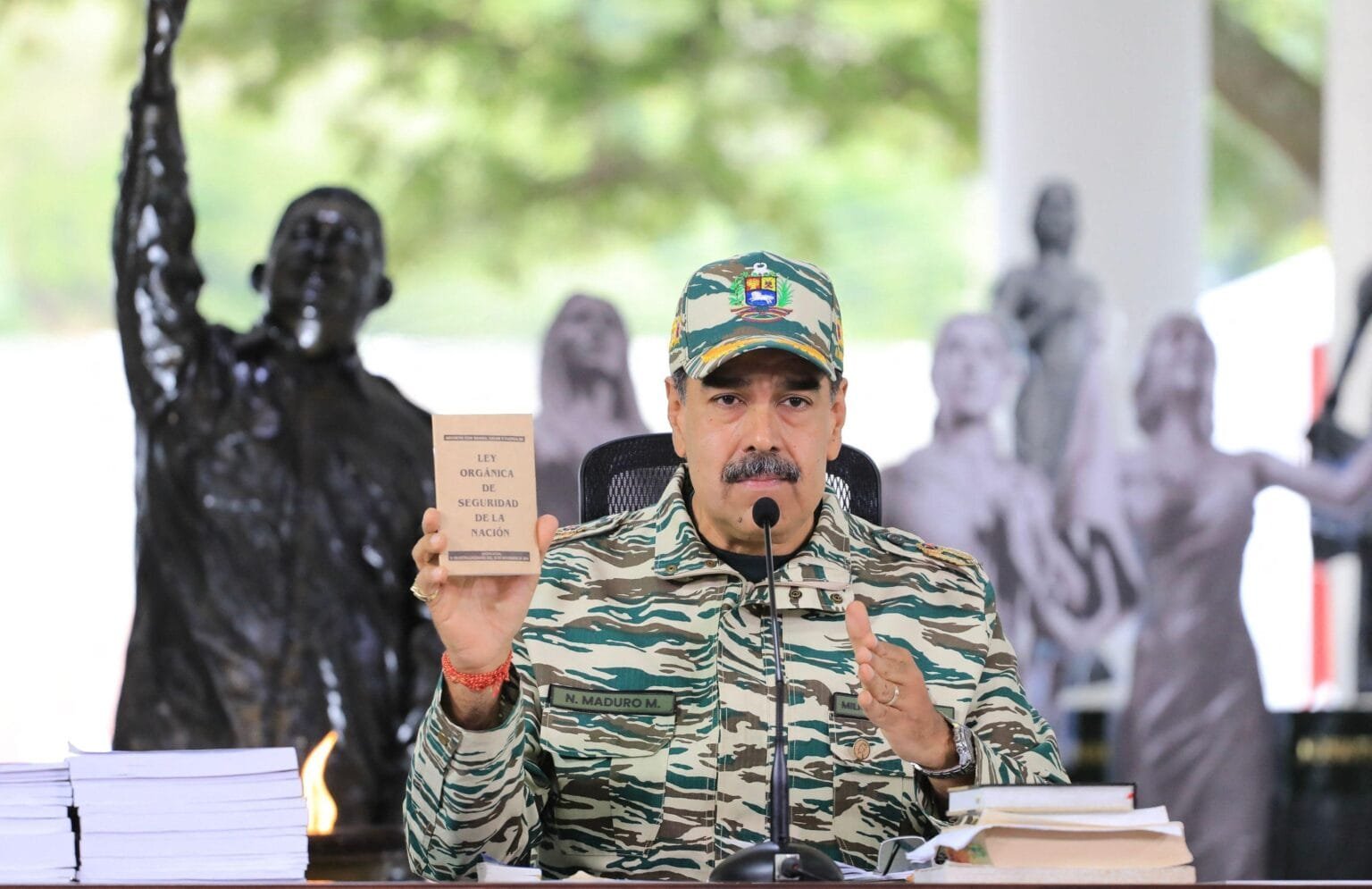Venezuelan President Nicolás Maduro has issued a stark warning: if his country comes under military aggression, Venezuela will shift from “unarmed struggle” to a stage of “armed struggle,” mobilizing its entire people in defense. Speaking before assembled troops during a rollout of the Bolivarian National Militia, Maduro emphasized that while the nation currently remains in a nonviolent posture, any attack—be it local, regional, or national—will provoke a comprehensive response from the population. The regime has already begun enrolling citizens for defensive training, signaling preparations for a possible confrontation.
His remarks come amid heightened regional tensions triggered by a sizable U.S. naval deployment in the southern Caribbean, officially launched to counter drug trafficking. Venezuelan officials including Maduro and Foreign Minister Yván Gil, denounce the operation as a veiled threat aimed at regime change, accusing Washington of employing narcotics as a pretext for military intimidation.
To counter what he described as the most severe threat to the hemisphere in a century, Maduro has mobilized 4.5 million militia members and reinforced border and coastal defenses. International outreach has included calls for support from CELAC (Community of Latin American and Caribbean States) and appeals to the UN to de-escalate the crisis.
The U.S. response continues to lean on rhetoric and tactical positioning rather than explicit military action. However, its unprecedented reinforcement comprising warships, submarines, F-35 jets, and Marines—is fueling concerns of either a direct conflict or intensified pressure to dismantle Maduro’s government, a possibility that analysts note could extend beyond anti-narcotics goals.





